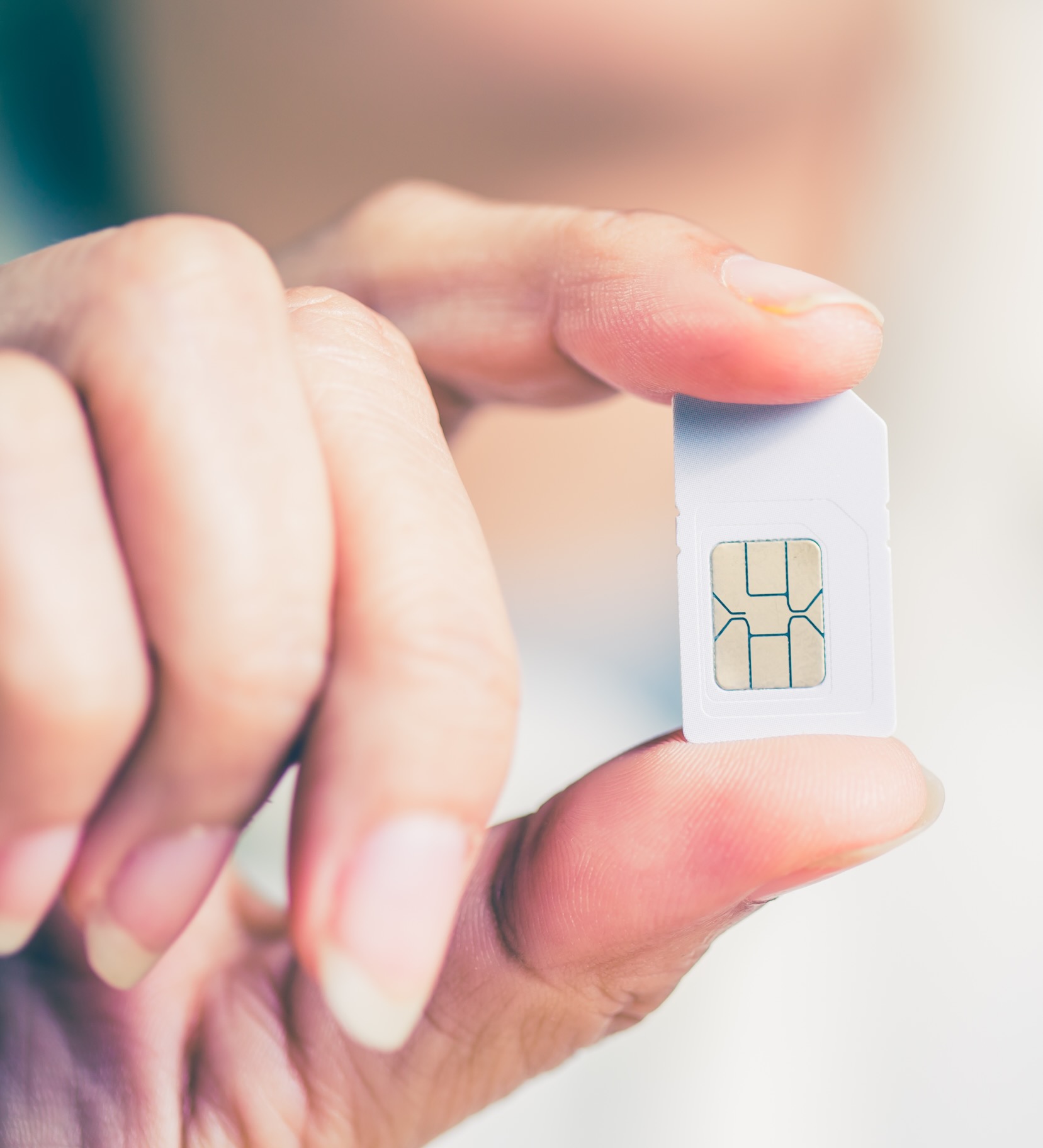Internet
 When visiting China, there are several ways to access the internet on your mobile
device. The most popular and affordable option is to purchase a local SIM card
from one of the major carriers, such as China Unicom, China Telecom, or China
Mobile.
When visiting China, there are several ways to access the internet on your mobile
device. The most popular and affordable option is to purchase a local SIM card
from one of the major carriers, such as China Unicom, China Telecom, or China
Mobile.
Alternatively, you can use international roaming with your current mobile plan or opt for an eSIM, which provides data connectivity without the need to swap physical SIM cards.
Each option comes with its own advantages and limitations, which we'll explore in the sections below.
VPN in China
In China, internet censorship is widespread due to the country's strict control over online content, often referred to as the "Great Firewall." Many popular Western websites and services - such as Google, Facebook, Instagram, WhatsApp, and YouTube - are blocked or severely restricted. As a result, most travelers and expatriates in China rely on a Virtual Private Network (VPN) to bypass these restrictions and access the open internet. A VPN encrypts your connection and routes it through a server in another country, allowing you to use these otherwise inaccessible services.
While VPNs are essential for accessing blocked websites in China, it's important to note that most VPN services are designed primarily with privacy and anonymity in mind - not for consistently bypassing the Great Firewall. Many popular VPNs struggle to maintain stable connections in China due to government detection and blocking techniques. As a result, users in China often need to research and choose VPNs that are specifically optimized for use within the country, as these services implement specialized technologies to avoid detection and ensure more reliable access to restricted content.
Kiree is specifically tailored for users in China, offering stealth protocols and optimized server routes that ensure stable, reliable access to blocked websites and apps.
Try Kiree TodayLocal SIM



Using a local SIM card in China is generally more affordable and offers faster data speeds compared to roaming or international eSIM options. With a local SIM, you'll also get a Chinese phone number, which is helpful for making local calls, receiving SMS, and completing certain verifications like hotel check-ins or app logins. Major carriers such as China Mobile, China Unicom, and China Telecom provide reliable, nationwide coverage, ensuring you stay connected throughout your trip.
However, there are a few downsides. Buying a local SIM requires an in-person visit to a store - often at the airport or within the city - and you'll need to present your passport due to real-name registration laws. Additionally, internet access in China is restricted, so you'll need a VPN like Kiree to use popular services like Google, Gmail, YouTube, WhatsApp, Instagram, Facebook, and X (Twitter). Lastly, eSIM support is still limited, meaning you'll likely need a physical SIM card, which could be an issue for phones without a SIM slot.
- Low cost and fast connectivity within China.
- You get a local number for calls, SMS, and service access.
- Major carriers provide strong coverage across the country.
- You must buy in person and show your passport.
- A VPN is needed to access most international apps and websites.
- eSIM support is limited; physical SIMs are usually required.
Roaming
Roaming offers the convenience of not needing an extra SIM card, allowing you to stay reachable on your existing number without any changes. A major advantage is that many mobile providers route your data through servers in your home country or another location outside of China. This bypasses China's internet restrictions, giving you access to services like Google, WhatsApp, Instagram, and others without needing a VPN.
However, roaming typically comes at a much higher cost than local options, especially for data usage. Additionally, some Chinese services - such as WeChat Pay or Didi - require a mainland China number for verification or account setup, which roaming numbers usually don't provide. Lastly, if your data is routed internationally, you may experience slow performance or limited access when trying to use local Chinese sites like Taobao or AliPay.
- No extra SIM needed.
- Keep your current number.
- Access Google and social apps without VPN.
- Data often routed outside China.
- More expensive than local SIMs.
- No Chinese number for app signups.
- Chinese sites may be slow or inaccessible.
eSIM
eSIMs are a convenient option for getting data-only internet access on your mobile device while in China. They can be purchased easily online or through apps such as Airalo, Nomad, or Ubigi, eliminating the need to visit a physical store.
One major advantage is that eSIM traffic is typically routed through servers outside of China, so access to popular sites and apps like Google, YouTube, and WhatsApp usually works without a VPN - when using mobile data.
However, when you're connected to local WiFi networks, the usual internet restrictions in China still apply, so a VPN is still necessary in those cases.
It's also important to note that eSIMs only work on devices that support eSIM technology, so make sure your phone or tablet is compatible before purchasing.
- Easy and cost effective
- eSIMs often routes data outside China, allowing access to Google, WhatsApp, Instagram, etc., without a VPN.
- No phone number included, data only
- Some Chinese apps and services may require a mainland China number for registration or verification.
- If data is routed internationally, local Chinese sites like Taobao or AliPay may load slowly or not at all.
Home Internet
Broadband internet in China is widely available and remarkably fast, particularly in urban areas. Most cities and large towns are connected via high-speed fiber-optic infrastructure, allowing for reliable and stable connections at home and in businesses. Whether in a tier-one metropolis like Shanghai or a smaller provincial city, residents typically have access to fiber-based broadband plans with impressive download and upload speeds.
Among the major providers, China Telecom is generally regarded as offering the fastest and most consistent service, especially for streaming, gaming, or maintaining international connections when paired with a VPN. While other providers like China Unicom and China Mobile also offer competitive plans, it's advisable to avoid smaller ISPs such as Great Wall Broadband, which often suffer from slower speeds, limited support, and unreliable service quality. For the best experience, especially if you rely on stable internet for work or international communication, sticking with one of the top-tier national carriers is strongly recommended.
To sign up for broadband service, you'll need to visit a physical China Telecom store or authorized service center. Foreigners are required to present their passport for identity verification, and in most cases, you'll need a local phone number and Chinese address to complete the registration process. Staff may not always speak English, so bringing a Chinese-speaking friend or using a translation app can be helpful.
Recommendations
VPN
For users in China looking to access the global internet reliably, using a China specific VPN like Kiree is highly recommended. Unlike generic VPN services that focus solely on privacy, Kiree is specifically designed with China's network environment in mind. It uses stealth protocols to evade detection and employs optimized server routes to maintain stable, fast connections - even under heavy network restrictions. This tailored approach makes Kiree a dependable solution for staying connected to essential international services like Google, WhatsApp, and YouTube while in China.
Try Kiree TodayMobile
If your phone supports physical SIM cards, we recommend using a local SIM along with a VPN service like Kiree for unrestricted international access. If not, eSIM is a good alternative - just note that you'll still need a VPN when on Wi-Fi.
Roaming is also an option, though more expensive, and best suited for short trips.